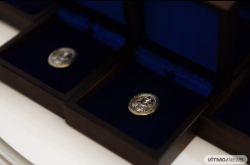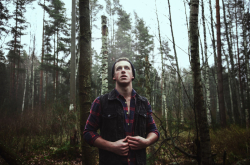Erasmus+Youth
Erasmus+Youth is a big organization founded more than 20 years ago and funded by the European Commission. Thanks to its initiatives, young people from all over the world can take part in international exchange and volunteer programs, as well as various courses and workshops. In 2018, the Secret Library exchange was held for the third time.
Secret Library. Chapter 3
Secret Library is an international youth exchange program dedicated to cultural activities. Together with four other Russian students from different cities (Arkhangelsk, Vologda, Nizhny Novgorod, and Yoshkar-Ola), we represented the Russian national team. There were also students from Estonia, Georgia, Italy, Jordan, Macedonia, and Turkey. As a general rule, national teams are made up of people who already know each other; for example, they can study at the same university or be members of the same organization. In our case, though, we didn’t know each other before the trip. So don’t hesitate to apply even if you don’t have a team.

We spent ten days at Palmse Manor in Estonia, where we discussed culture and literature, debunked stereotypes, and shared our countries’ myths and legends, which we then documented in our movie. Palmse Manor is a wonderful place, located in the Lahemaa National Park, which is known for its astonishing views.
We were asked to organize intercultural nights, tea ceremonies and coffee breaks as our home assignments. Intercultural nights are basically parties that take place late in the evening. During one such night, we teamed up with Turkish students and cooked our national food and showcased out traditional dances. We also combined a Turkish ceremony called Henna Night (a Turkish bridal shower held before the wedding, during which the bride’s relatives smear henna on the bride’s hands) with our New Year.

I was really surprised to learn that many participants could speak Russian. I hadn’t known that the Russian language is so widespread in Estonia. What also surprised me was that the Macedonian language is quite similar to Russian, as it is also a Slavic language. I could even understand some poems in Macedonian.
Literature, legends and a movie
National literature, legends and a movie are the three pillars that the program is based on. So if you’re interested in literature, theater and cinema, this is exactly the place for you. The final goal of the program is to shoot a fairy-tale story, based on the legends of all the participating countries.
One class was dedicated to the national literature of different countries. Participants shared about what makes their country’s literary heritage special and named five authors and their works they’d recommend reading. We discussed authors of the Gold and Silver Ages of the Russian literature. Another one focused on national folklore, and here we mentioned the Song of Oleg the Wise.

At the end of the program, we shot a movie based on the legends of different countries. The participants of the exchange divided into teams, everyone settled upon a role they wanted to play in the filming process. Our team consisted of make-up artists, scriptwriters, and directors, as well as actors who we cast based on auditions. Before we started shooting, our director and scriptwriters adapted the legends and integrated them in one single story, which forms the basis for our movie. Then we went through with all the filming work. Now we’re still at the post-filming stage of editing and doing voice-overs. The finished work will soon be available on Youtube.
Goals of the exchange
The program is aimed at informal learning through coaching sessions, games, discussions, and dialog in general. We didn’t have any teachers or cinema experts helping us, we did everything on our own. The main achievement of the exchange as I see it was that the participants became more tolerant to other cultures. For example, I myself had some stereotypes about certain countries, but the program helped me deal with those. One of the tasks focused on working through such stigmas. There were posters with the names of different countries, and we had to write down our associations for each. Then people from these countries explained what caused this or that stereotype and is it in any way true or not.

Using the exchange experience
If you’re involved in volunteering or project organization, you can really benefit from applying the experience of participation in this exchange to these fields of activities. I’m going to use the new skills and perspectives I gained in the project ‘Celebrations for Kids’, which supports ill children isolated in the city’s hospitals. We host fun workshops and performances to entertain them and make them feel better. I plan to dedicate one of our next workshops to the cultures of the world. Apart from learning new skills, the program allowed me to discover new formats of interaction, such as games and tasks, I could try in my work with kids. One example is energizers, which is a kind of games aimed at uniting people and warming them up for the next activities. The exchange also included some well-known games but gave them a unique new focus. For instance, we played in a traditional game of chairs, the one where the lead suddenly takes out a chair out of the circle, and the participants have to reshuffle. Typically in that game the participant that fails to claim a chair loses. But our task was to find room for all the players on however chairs we were left with.
Who can participate and how
Anyone aged between 13 to 30 years old is welcome to take part in Erasmus+Youth exchanges. It doesn’t matter whether you’re a student or a working specialist. Our team included both. You can learn more on the websites of Erasmus or other organizations specializing in international youth exchanges; for example, I went with the one called ‘Sfera’. All you need to apply is to contact such an organization, send them your CV and motivation letter, and then wait for the decision of the selection committee.

What you write in your motivation letter depends on the focus of the project you’ve chosen. Because mine was a literature and cinema-based, I had to expand on my creative activities, so I wrote about my long years of doing vocal training, experience of participating in stage performances and my love for reading. Also factored in are your personal qualities, but you don’t necessarily have to have a past volunteering record.
Number of candidates per place
There are a lot of people competing for one place, from Russia at least. There are also not that many programs out there ready to accept Russians as participants; all this comes down to funding issues: Russia is not a member of the European Union, and with such projects being financed by the European Commission, it’s very hard for organizers to justify accepting participants from the third countries. That is the reason why the EU has a much higher youth mobility rate. One participant from Estonia said that this program was his fifths in six months, and for a sixteen-year-old girl from Italy, it was her 11th time of participating in such an international experience.
Who should go
If you’re sociable and eager to discover other cultures, this project is definitely meant for you. These initiatives are very important for building bridges between citizens of different countries, for overcoming mental and real barriers, for the better understanding of each other. I myself plan on taking part in another youth exchange: it’s not that hard to find the time because they’re so short-term.




